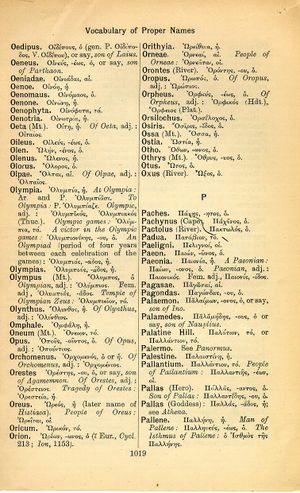Otho
Δύναται τὸ πλουτεῖν καὶ φιλανθρώπους ποιεῖν → Being rich can even produce a social conscience → Animos nonnumquam humanos concinnant opes → Mitunter macht der Reichtum Menschen auch human
English > Greek (Woodhouse)
Ὄθων, -ωνος, ὁ.
Latin > English (Lewis & Short)
Ŏtho: ōnis, m., = Ὄθων,
I a Roman surname.
I L. Roscius Otho, a knight, a friend of Cicero, and author of the law that the knights should occupy the first fourteen seats in the theatre next to the orchestra, Cic. Mur. 19, 40; cf. Ascon. ad Cornel. p. 79 Orell.—Hence, sic libitum vano, qui nos distinxit, Othoni, Juv. 3, 159.—
II M. Salvius Otho, a Roman emperor, whose biography is given by Suetonius: mollis Otho, Mart. 6, 32, 2; Juv. 2, 99.—Hence,
B Ŏthōnĭānus, a, um, adj., of or belonging to the emperor Otho, Othonian: Othoniani duces, of the emperor Otho, Tac. H. 2, 24: partes, id. ib. 2, 33.
Latin > French (Gaffiot 2016)
Ŏthō,⁸ ōnis, m. (Ὄθων), surnom romain ; nott : L. Roscius Othon [tribun de la plèbe, qui fixa la place des chevaliers au théâtre] : Cic. Mur. 40

